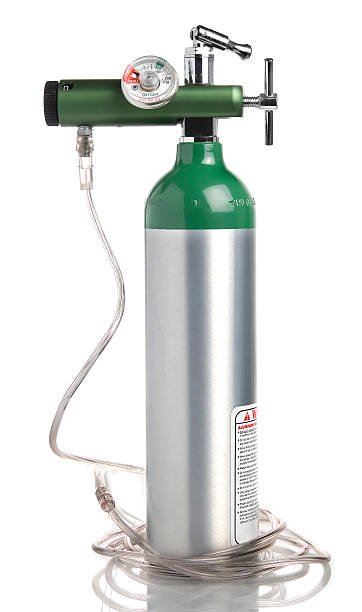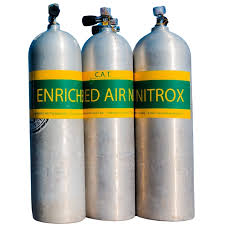 Online Scuba Lessons |
 Online Nitrox Lessons |
Oxygen after Scuba
Diving.


A lot of attention has been given to the role of oxygen in SCUBA diving lately, although the benefits of proper oxygen administration have been known for some time. Greater accessibility to personal oxygen supply devices and a greater awareness of dive related illnesses and treatments, due to increased training no doubt, have made this diving new Hot Topic. We feel this is not a passing phase but an integral part of any diver's training and is long overdue. We recently held a class on O2 administration at the end of which several local divers earned their O2 administration certifications. This enables these divers to legally and intelligently administer what will be a diver's first and most important life saving step in the event of a decompression accident. My hat is off to these divers; diving with such informed and well trained people can only enhance all of our diving safety.
Early administration of oxygen, when a DCI (decompression Illness) is suspected can have many beneficial effects--and may well be the action that saves a diver's very life. Oxygen aids in more efficient offgassing of nitrogen, the reduction of edema (swelling), increased oxygen to oxygen deprived tissues, the possible reduction of bubble size in tissues, and the possible relief of general symptoms. It is without a doubt that the sooner oxygen is administered, the better the results, and, the best results can only be assured with proper training and understanding of the procedures that are used. In short--fast, correct administering of oxygen can only help - it certainly could never hurt!
There are a few different oxygen delivery device options, which O2 administration students are taught: There is the Demand Valve, the Constant-Flow device, and a wide variety of masks to suit the needs of a variety of situations. It is important to know what type will deliver the highest percentage of oxygen in a given situation! Demand valves work very much like the second stage of your regulator - 100 percent oxygen is delivered on demand, i.e. - as the diver inhales each breath. Constant flow devices deliver a constant stream of oxygen which my be mixed with ambient (outside) air, depending on the mask or device used. These choices exist because unfortunately in some instances a diver may be too badly injured for the demand device to be practical. Knowing which device will work in a given situation, while delivering the highest concentration of oxygen can be critical. DAN (Diver's Alert Network) sells a unit that has both options, plus all the proper masks and attachments a diver might need. Given DAN's extensive research and experience in dive related injuries, they are probably the best authority on the subject, whether purchasing a unit for yourself or just seeking training on it's use.
We don't all have to be trained in O2 admin. though, to benefit from this knowledge. There are a few simple things you can do that can save a life if the need ever arises (and we hope it never does - but being better off safe than sorry never hurts.) One, when you are a passenger on a dive boat, learn the locations of the oxygen kits, and check to see if they are full and operational (You might want to ask permission to do this, or just ask your captain for that information.) Two, talk to your fellow divers to see if any of them are trained in emergency procedures, such as rescue and O2 admin. (These divers make the best buddies in most cases!) Three, do not hesitate to encourage O2 administration if even the slightest fear of DCI might exist. Aggressive action on your part may save a life - (and the life you save may be your own!) and Four, don't stop there-even after the symptoms subside, as they very well might do in many DCI cases - make absolutely sure that a follow up is done-by notifying the local medical personnel or contacting the nearest hyperbaric facility (you can contact DAN to arrange this - this is a service they provide to all divers, regardless of membership or insurance status.) And, Five (which maybe should be Number One) - keep adequate DAN or other diver's insurance in force, because the price of a trip to the local deco chamber is enough to put a crimp in your diving activities for a long, long time!
We want you to be safe - we kinda' like having you guys around!
Good Diving...
Bwana
![]()